AI Tables Ignite New Battles, Big Tech Firms Compete for the 'Next-Gen Office'
![]() 07/16 2025
07/16 2025
![]() 717
717

 The competition among DingTalk, Feishu, and WeChat Work in AI Tables is not only a manifestation of Alibaba, ByteDance, and Tencent's struggle for discourse power in AI to B but also a reflection of the business expansion logic where every inch of territory is fiercely contested by leading tech giants.
The competition among DingTalk, Feishu, and WeChat Work in AI Tables is not only a manifestation of Alibaba, ByteDance, and Tencent's struggle for discourse power in AI to B but also a reflection of the business expansion logic where every inch of territory is fiercely contested by leading tech giants. Original Tech News AI Tech Team
Original Tech News AI Tech Team
Tencent, Alibaba, and ByteDance have recently reignited the battle in the B-end collaborative office space. First, Alibaba's DingTalk launched a new AI Table on July 8, followed by Feishu unveiling a new generation of AI-driven multi-dimensional tables at the 2025 Feishu Future Infinite Conference the next day. Additionally, Tencent's WeChat Work subsequently released versions 4.1.36 and 4.1.38, further enhancing the AI capabilities of its smart tables.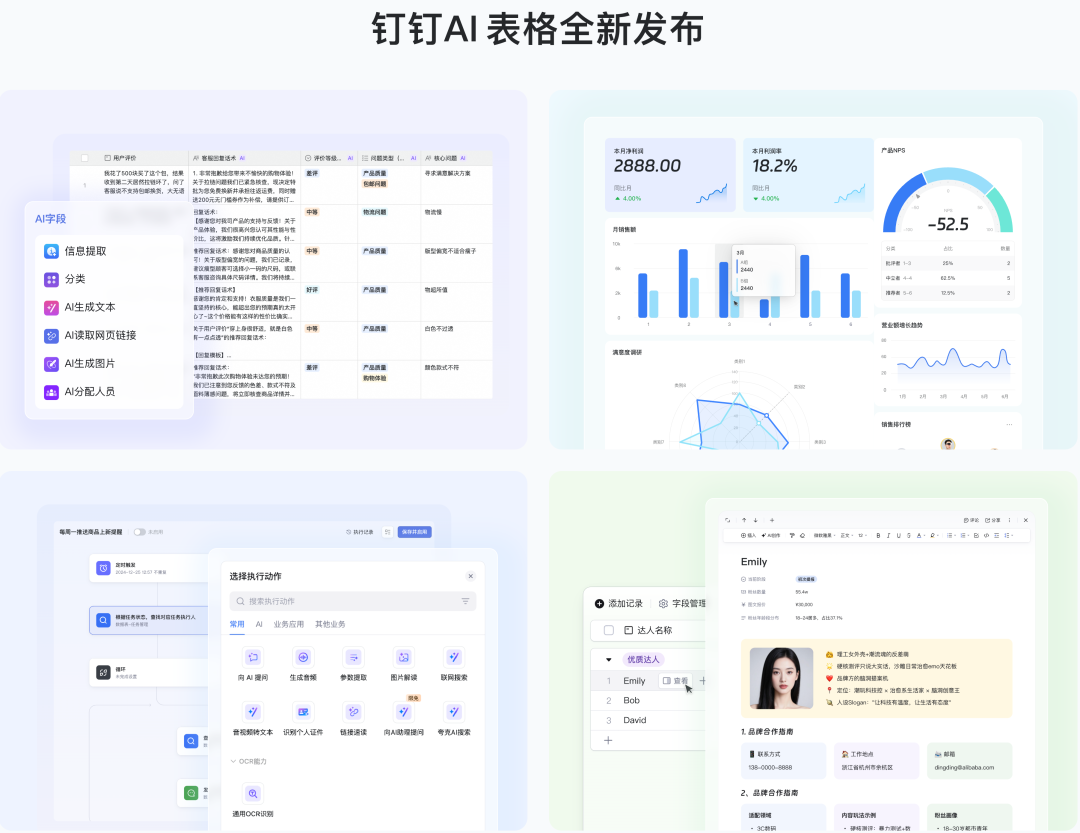 Against the backdrop of the surging popularity of large models and the global explosion of AI applications, these three companies, deeply entrenched in the collaborative office space, have coincidentally rolled out AI Tables. Despite their unique technical foundations and detailed functionalities, the fact that all three are focusing on the same vertical track at similar time points underscores the severity of the competition, with none wanting to lag behind. In fact, whether it's vertical competition in the collaborative office space or user competition in instant retail, the underlying logic of the close-quarters combat between big tech firms in both B-end and C-end markets is similar: In an era of Stock competition , the business tentacles of leading enterprises are gradually expanding. In the process of evolving into super-head enterprises, every segment requires fierce competition, and the principle of 'falling behind means getting hit' still applies in the business world.
Against the backdrop of the surging popularity of large models and the global explosion of AI applications, these three companies, deeply entrenched in the collaborative office space, have coincidentally rolled out AI Tables. Despite their unique technical foundations and detailed functionalities, the fact that all three are focusing on the same vertical track at similar time points underscores the severity of the competition, with none wanting to lag behind. In fact, whether it's vertical competition in the collaborative office space or user competition in instant retail, the underlying logic of the close-quarters combat between big tech firms in both B-end and C-end markets is similar: In an era of Stock competition , the business tentacles of leading enterprises are gradually expanding. In the process of evolving into super-head enterprises, every segment requires fierce competition, and the principle of 'falling behind means getting hit' still applies in the business world.
01
Three Giants Strive to Become the 'Next-Gen Office' The layout of AI Tables by DingTalk, Feishu, and WeChat Work can be seen as using AI to reshape traditional application tools (tables), which is also the prevailing trend in current enterprise innovation and competition. After all, from healthcare to retail, transportation to education, and even in more elite content creation, 'AI+' is no longer a novelty. In DingTalk's description, its newly launched AI Table is an 'entry point for creating new applications for the AI era,' treating every cell in the table as an AI entry point. Simultaneously, it introduces the new 'Table as Document' function, integrating documents into data tables for the first time. Each row in the table is an independent document, allowing users to input freely as they would in regular documents, with information at a glance, further expanding the application scenarios of AI Tables. According to DingTalk's official statement, the new AI Table truly elevates AI from a conversation window to an out-of-the-box business system, integrating into all aspects of enterprise communication, collaboration, and processes, significantly unleashing productivity. Feishu's new generation of multi-dimensional tables has seen a significant boost in AI and system building capabilities, aiming to unleash the potential of every employee using the system, thereby helping enterprises gain a greater advantage. At the Future Infinite Conference where the new generation of multi-dimensional tables was unveiled, Feishu also released upgraded versions of multiple AI products, including Knowledge Q&A, AI Meetings, Feishu Aily, and Feishu Magic.
The layout of AI Tables by DingTalk, Feishu, and WeChat Work can be seen as using AI to reshape traditional application tools (tables), which is also the prevailing trend in current enterprise innovation and competition. After all, from healthcare to retail, transportation to education, and even in more elite content creation, 'AI+' is no longer a novelty. In DingTalk's description, its newly launched AI Table is an 'entry point for creating new applications for the AI era,' treating every cell in the table as an AI entry point. Simultaneously, it introduces the new 'Table as Document' function, integrating documents into data tables for the first time. Each row in the table is an independent document, allowing users to input freely as they would in regular documents, with information at a glance, further expanding the application scenarios of AI Tables. According to DingTalk's official statement, the new AI Table truly elevates AI from a conversation window to an out-of-the-box business system, integrating into all aspects of enterprise communication, collaboration, and processes, significantly unleashing productivity. Feishu's new generation of multi-dimensional tables has seen a significant boost in AI and system building capabilities, aiming to unleash the potential of every employee using the system, thereby helping enterprises gain a greater advantage. At the Future Infinite Conference where the new generation of multi-dimensional tables was unveiled, Feishu also released upgraded versions of multiple AI products, including Knowledge Q&A, AI Meetings, Feishu Aily, and Feishu Magic.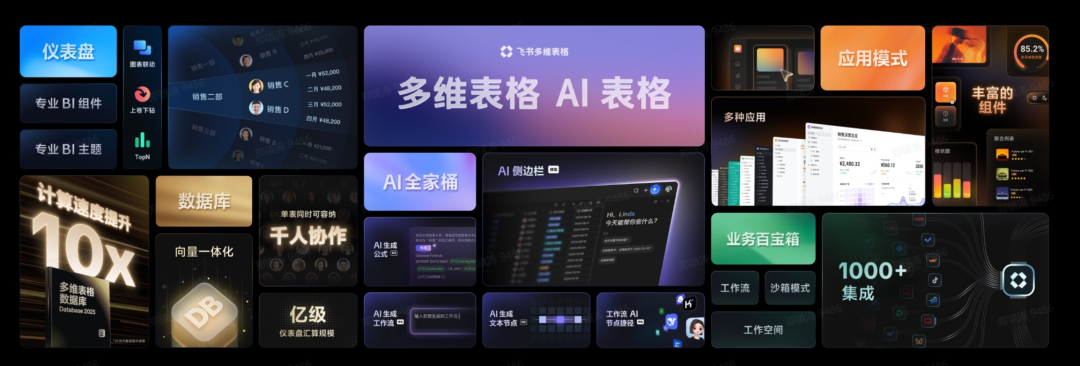 Another participant, WeChat Work, has also upgraded its smart tables, focusing on AI capabilities. According to its official introduction, the latest version of WeChat Work upgrades the smart table's 'AI Field' capabilities, enabling batch tagging, classification, image understanding, and custom fields, making business analysis and efficiency enhancement simpler.
Another participant, WeChat Work, has also upgraded its smart tables, focusing on AI capabilities. According to its official introduction, the latest version of WeChat Work upgrades the smart table's 'AI Field' capabilities, enabling batch tagging, classification, image understanding, and custom fields, making business analysis and efficiency enhancement simpler.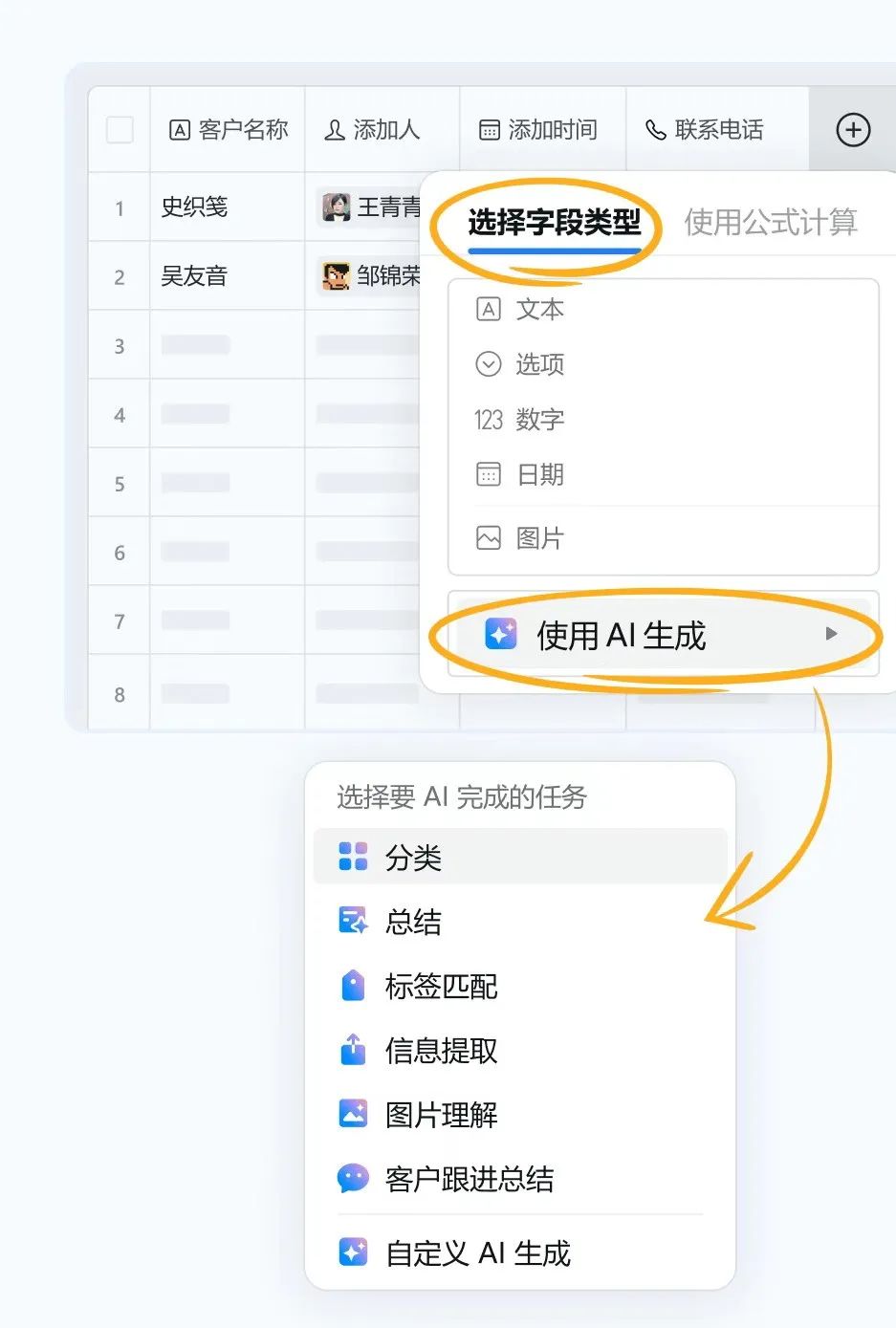 Setting aside the detailed differences in technical foundations and functionalities, the upgrades to multi-dimensional/smart tables by all three can be seen as functional iterations through AI, with product promotion also aimed at enhancing operational efficiency for enterprise users. Why have all three companies chosen to focus on AI Tables? For DingTalk, the group needs DingTalk to defend the to B gateway for its AI strategy, and the AI Table can be seen as the first major move by Wu Zhao after his return to prove himself. For Feishu, CEO Xie Xin positions the AI-upgraded multi-dimensional table as the 'fourth piece beyond Word, Excel, and PPT in the Office suite.' For WeChat Work, although the sense of urgency in competition is slightly weaker, it does not want to miss out on the opportunity to apply AI to B in office scenarios. With converging application scenarios, to some extent, becoming the Office of the AI era may be a common pursuit. In fact, since the advent of ChatGPT, the AI revolution has become an industry consensus. The layout of AI Tables by DingTalk, Feishu, and WeChat Work is, to a certain extent, a branch of Alibaba, ByteDance, and Tencent's AI strategies. As early as 2023, Alibaba had already proposed an 'AI-driven' strategy. In their annual report letter to shareholders, Alibaba Group Chairman Joseph Tsai and CEO Simon Wu pointed out that the largest increments and variables in the next decade will come from AI. Among them, DingTalk, as a key entry point for Alibaba's AI to B, carries the group's expectations for B-end business. ByteDance's layout in AI dates back to 2016. In November 2021, new CEO Liang Rubo sent an email to all employees announcing that ByteDance would undergo organizational adjustments, establishing six major business segments, with AI strategic goals fully empowered. With the continuous elevation of AI's strategic position within the group, ByteDance has now formed a comprehensive AI ecosystem spanning from C-end to B-end. In the B-end layout, with Volcano Engine as the core carrier, internal AI capabilities are transformed into enterprise-level solutions, with Feishu being one of them. Tencent's layout in AI was previously more conservative, but with the AI trend brought about by the popularity of DeepSeek, Tencent's AI strategy has entered a heavy investment phase since the second half of last year: accelerating AI penetration across all products based on a multi-model strategy of 'self-development + open source.' WeChat Work is a strategic entry point for Tencent's AI to B, aiming to provide Tencent's AI (especially large models) with abundant real-world enterprise scenarios for validation and iteration. From the above information, it can be seen that the AI layouts of these three major companies are large-scale, long-term strategic actions taken under the general trend of the times. As one aspect of their strategic overviews, AI Tables demonstrate the determination of big tech firms to compete for AI to B.
Setting aside the detailed differences in technical foundations and functionalities, the upgrades to multi-dimensional/smart tables by all three can be seen as functional iterations through AI, with product promotion also aimed at enhancing operational efficiency for enterprise users. Why have all three companies chosen to focus on AI Tables? For DingTalk, the group needs DingTalk to defend the to B gateway for its AI strategy, and the AI Table can be seen as the first major move by Wu Zhao after his return to prove himself. For Feishu, CEO Xie Xin positions the AI-upgraded multi-dimensional table as the 'fourth piece beyond Word, Excel, and PPT in the Office suite.' For WeChat Work, although the sense of urgency in competition is slightly weaker, it does not want to miss out on the opportunity to apply AI to B in office scenarios. With converging application scenarios, to some extent, becoming the Office of the AI era may be a common pursuit. In fact, since the advent of ChatGPT, the AI revolution has become an industry consensus. The layout of AI Tables by DingTalk, Feishu, and WeChat Work is, to a certain extent, a branch of Alibaba, ByteDance, and Tencent's AI strategies. As early as 2023, Alibaba had already proposed an 'AI-driven' strategy. In their annual report letter to shareholders, Alibaba Group Chairman Joseph Tsai and CEO Simon Wu pointed out that the largest increments and variables in the next decade will come from AI. Among them, DingTalk, as a key entry point for Alibaba's AI to B, carries the group's expectations for B-end business. ByteDance's layout in AI dates back to 2016. In November 2021, new CEO Liang Rubo sent an email to all employees announcing that ByteDance would undergo organizational adjustments, establishing six major business segments, with AI strategic goals fully empowered. With the continuous elevation of AI's strategic position within the group, ByteDance has now formed a comprehensive AI ecosystem spanning from C-end to B-end. In the B-end layout, with Volcano Engine as the core carrier, internal AI capabilities are transformed into enterprise-level solutions, with Feishu being one of them. Tencent's layout in AI was previously more conservative, but with the AI trend brought about by the popularity of DeepSeek, Tencent's AI strategy has entered a heavy investment phase since the second half of last year: accelerating AI penetration across all products based on a multi-model strategy of 'self-development + open source.' WeChat Work is a strategic entry point for Tencent's AI to B, aiming to provide Tencent's AI (especially large models) with abundant real-world enterprise scenarios for validation and iteration. From the above information, it can be seen that the AI layouts of these three major companies are large-scale, long-term strategic actions taken under the general trend of the times. As one aspect of their strategic overviews, AI Tables demonstrate the determination of big tech firms to compete for AI to B.
02
Capturing User Minds Through Competition An obvious fact is that in the AI to B application scenario, the competition between Alibaba, ByteDance, and Tencent is intense, with all three empowering their enterprises through group resources to gain a differentiated advantage. However, due to the similarities in the basic application scenarios of multi-dimensional/smart tables among enterprises, although AI upgrades bring respective advantages, they are still some distance from disruptive innovations that significantly change application scenarios. The lack of disruptive differences in usage scenarios among the three has also prompted them to focus on user acquisition beyond technology, aiming to capture the minds of enterprise users first. In 2023, in terms of user scale data, DingTalk ranked first, followed by WeChat Work, and Feishu third. Although none of the three have since released specific user scale figures, replacing them with commercial revenue, the battle for users remains fierce. Feishu boasts a roster of star clients, including AI industry players such as DeepSeek, domestic AI large models like the 'Six Tigers,' and Horizon Robotics, as well as new energy vehicle brands like Xiaomi, NIO, XPeng, and Li Auto. DingTalk also has strong support from star companies in the technology innovation sector, such as BrainCo and Unitree Robotics.
An obvious fact is that in the AI to B application scenario, the competition between Alibaba, ByteDance, and Tencent is intense, with all three empowering their enterprises through group resources to gain a differentiated advantage. However, due to the similarities in the basic application scenarios of multi-dimensional/smart tables among enterprises, although AI upgrades bring respective advantages, they are still some distance from disruptive innovations that significantly change application scenarios. The lack of disruptive differences in usage scenarios among the three has also prompted them to focus on user acquisition beyond technology, aiming to capture the minds of enterprise users first. In 2023, in terms of user scale data, DingTalk ranked first, followed by WeChat Work, and Feishu third. Although none of the three have since released specific user scale figures, replacing them with commercial revenue, the battle for users remains fierce. Feishu boasts a roster of star clients, including AI industry players such as DeepSeek, domestic AI large models like the 'Six Tigers,' and Horizon Robotics, as well as new energy vehicle brands like Xiaomi, NIO, XPeng, and Li Auto. DingTalk also has strong support from star companies in the technology innovation sector, such as BrainCo and Unitree Robotics.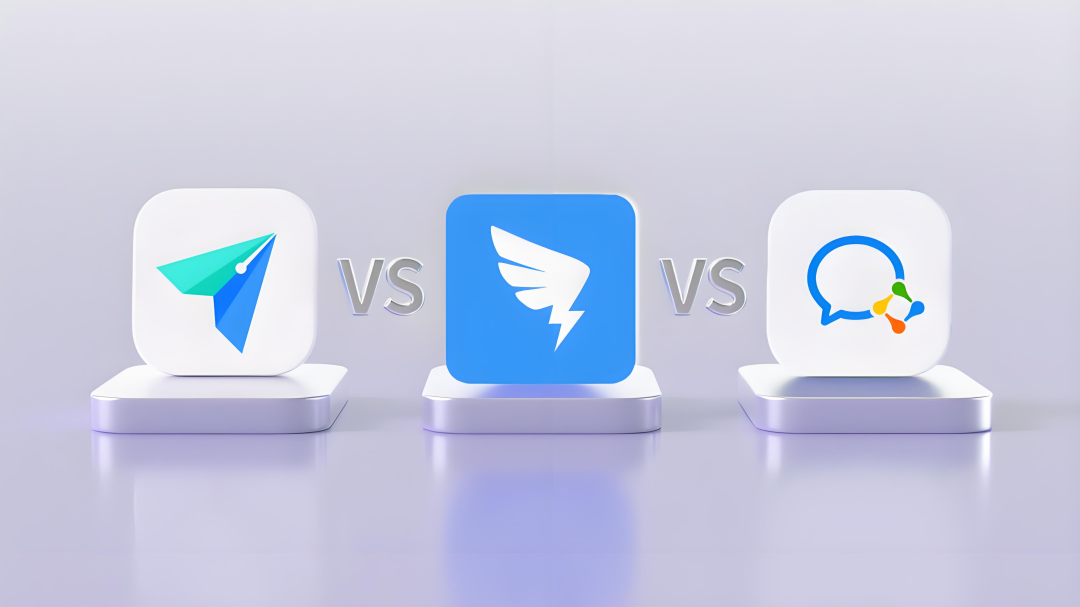 Image/AI CreatedAccording to related reports, multiple retail and consumer brands, including Eifini, HXS, Proya, and Jasmine Milk Tea, have migrated from DingTalk to Feishu, while new energy vehicle brands XPeng and Li Auto have also left DingTalk for Feishu. On the other hand, Best Express, Lierda, and Weimai have migrated from Feishu to DingTalk. Additionally, according to a report by LatePost, DingTalk launched a 'Flip Book Plan' last year, where salespeople can earn more bonuses for signing up Feishu clients. WeChat Work, backed by the WeChat ecosystem, has inherent advantages but has been relatively quiet in the user acquisition battle compared to the other two. Its last widely circulated external statement dates back to January 2024, when WeChat Work Vice President Li Zhifeng revealed at a partner exchange meeting that 'WeChat Work is confident in achieving profitability first among the three major players (WeChat Work, DingTalk, and Feishu) this year.' However, this does not mean that WeChat Work is resting on its laurels with the WeChat ecosystem's dividends. The recent AI upgrade to smart tables in its latest version can also reflect its mindset of not wanting to fall behind. In terms of pricing for multi-dimensional/smart tables, competition also exists. DingTalk announced in June this year that multi-dimensional tables are free, while Feishu maintains a free basic version of its multi-dimensional tables with a commercial version priced at 50 to 120 yuan per month. Responding to this situation, Feishu's Xie Xin said in an interview with LatePost, 'Actually, some of DingTalk's charging points have become stricter, but they are better at promotion.' In comparison, WeChat Work's smart tables also maintain a free basic version with a paid model for some advanced versions. Relying on the WeChat ecosystem, WeChat Work is not afraid of falling behind despite its limited actions in the three-way competition for user minds, and its commercial revenue continues to grow. According to Tencent's Q1 2023 financial report, the group's enterprise services revenue, represented by WeChat Work, achieved double-digit growth. In this battle for user minds, DingTalk and Feishu are fiercely competing, while WeChat Work sits comfortably on the sidelines. However, with the continuous advancement of AI strategies behind Alibaba, ByteDance, and Tencent, the competition in the collaborative office space among the three is far from over.
Image/AI CreatedAccording to related reports, multiple retail and consumer brands, including Eifini, HXS, Proya, and Jasmine Milk Tea, have migrated from DingTalk to Feishu, while new energy vehicle brands XPeng and Li Auto have also left DingTalk for Feishu. On the other hand, Best Express, Lierda, and Weimai have migrated from Feishu to DingTalk. Additionally, according to a report by LatePost, DingTalk launched a 'Flip Book Plan' last year, where salespeople can earn more bonuses for signing up Feishu clients. WeChat Work, backed by the WeChat ecosystem, has inherent advantages but has been relatively quiet in the user acquisition battle compared to the other two. Its last widely circulated external statement dates back to January 2024, when WeChat Work Vice President Li Zhifeng revealed at a partner exchange meeting that 'WeChat Work is confident in achieving profitability first among the three major players (WeChat Work, DingTalk, and Feishu) this year.' However, this does not mean that WeChat Work is resting on its laurels with the WeChat ecosystem's dividends. The recent AI upgrade to smart tables in its latest version can also reflect its mindset of not wanting to fall behind. In terms of pricing for multi-dimensional/smart tables, competition also exists. DingTalk announced in June this year that multi-dimensional tables are free, while Feishu maintains a free basic version of its multi-dimensional tables with a commercial version priced at 50 to 120 yuan per month. Responding to this situation, Feishu's Xie Xin said in an interview with LatePost, 'Actually, some of DingTalk's charging points have become stricter, but they are better at promotion.' In comparison, WeChat Work's smart tables also maintain a free basic version with a paid model for some advanced versions. Relying on the WeChat ecosystem, WeChat Work is not afraid of falling behind despite its limited actions in the three-way competition for user minds, and its commercial revenue continues to grow. According to Tencent's Q1 2023 financial report, the group's enterprise services revenue, represented by WeChat Work, achieved double-digit growth. In this battle for user minds, DingTalk and Feishu are fiercely competing, while WeChat Work sits comfortably on the sidelines. However, with the continuous advancement of AI strategies behind Alibaba, ByteDance, and Tencent, the competition in the collaborative office space among the three is far from over.
03
The Essence of Expansion Is to Secure a Position for the Future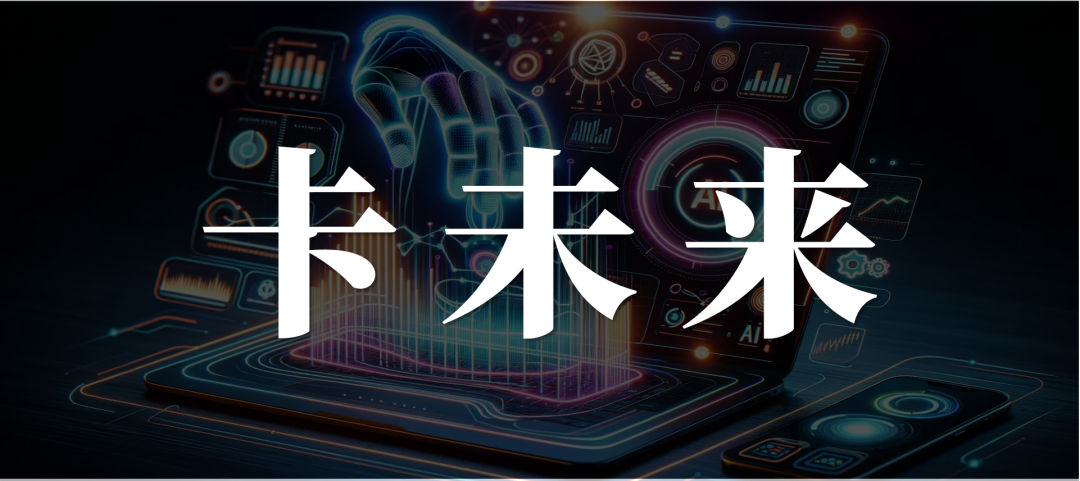 In fact, the rivalry between DingTalk, Feishu, and WeChat Work in the collaborative office space is one of the measures taken by Alibaba, ByteDance, and Tencent, the three internet giants, to compete for future discourse power. Besides competing for the minds of enterprise users in the B-end, the three giants have also been competing fiercely in the broader and more intense C-end market for a long time. For example, in e-commerce, Alibaba's Taobao and Tmall can be considered benchmarks for traditional shelf e-commerce. The rise of Douyin's content e-commerce has to some extent complicated the competitive landscape in the e-commerce market. As WeChat begins to refocus on e-commerce, competition among the three in this sector will continue. In digital entertainment, Tencent's Tencent Video and Alibaba's Youku, representing the long-form video camp, have been impacted by Douyin, which emerged from short videos, and Hongguo Short Drama, which offers free short dramas. In response to the impact of the ByteDance ecosystem, Tencent Video and Youku have also started to focus on short dramas. In online literature, Tencent's China Literature, Alibaba's Shuqi Novel, and ByteDance's Tomato Novel are in direct competition.
In fact, the rivalry between DingTalk, Feishu, and WeChat Work in the collaborative office space is one of the measures taken by Alibaba, ByteDance, and Tencent, the three internet giants, to compete for future discourse power. Besides competing for the minds of enterprise users in the B-end, the three giants have also been competing fiercely in the broader and more intense C-end market for a long time. For example, in e-commerce, Alibaba's Taobao and Tmall can be considered benchmarks for traditional shelf e-commerce. The rise of Douyin's content e-commerce has to some extent complicated the competitive landscape in the e-commerce market. As WeChat begins to refocus on e-commerce, competition among the three in this sector will continue. In digital entertainment, Tencent's Tencent Video and Alibaba's Youku, representing the long-form video camp, have been impacted by Douyin, which emerged from short videos, and Hongguo Short Drama, which offers free short dramas. In response to the impact of the ByteDance ecosystem, Tencent Video and Youku have also started to focus on short dramas. In online literature, Tencent's China Literature, Alibaba's Shuqi Novel, and ByteDance's Tomato Novel are in direct competition. Tracing back to the source against the backdrop of normalized competition, a fact that cannot be ignored is that the original businesses of these three major companies were originally quite different: Tencent's initial business was instant messaging, Alibaba's initial business positioning was a B2B e-commerce platform, and ByteDance's initial business was algorithmic news. Despite their different initial businesses, Tencent, Alibaba, and ByteDance share a converging mindset in the AI era: besides competition in AI Tables, they are also engaged in races in large model tracks, such as Tencent's Hunyuan large model, Alibaba's Tongyi large model, and ByteDance's Doubao large model, as well as agents and AI assistants based on AI large models. The layout of these three companies in the AI sector is at the forefront of the industry, encompassing both B-end and C-end markets. The core driving force behind these companies' expansion from a single business to a diversified ecosystem group is the continuous Stock competition , where user traffic gradually peaks, prompting big tech firms to expand their businesses to tap into the value of existing users, which inevitably encroaches on the business territories of competitors. On this basis, the underlying logic of these companies' business expansion can be summarized in four main aspects: invading rivals' territories, safeguarding core business forbidden zones, achieving synergy within their own business matrix, and competing for the next technological entry point. Among them, the AI large model, as the current trend of the times, is an important factor in securing future technological entry points, whether it's AI assistants in the C-end or large models and collaborative offices in the B-end, where every inch of territory must be fiercely contested.
Tracing back to the source against the backdrop of normalized competition, a fact that cannot be ignored is that the original businesses of these three major companies were originally quite different: Tencent's initial business was instant messaging, Alibaba's initial business positioning was a B2B e-commerce platform, and ByteDance's initial business was algorithmic news. Despite their different initial businesses, Tencent, Alibaba, and ByteDance share a converging mindset in the AI era: besides competition in AI Tables, they are also engaged in races in large model tracks, such as Tencent's Hunyuan large model, Alibaba's Tongyi large model, and ByteDance's Doubao large model, as well as agents and AI assistants based on AI large models. The layout of these three companies in the AI sector is at the forefront of the industry, encompassing both B-end and C-end markets. The core driving force behind these companies' expansion from a single business to a diversified ecosystem group is the continuous Stock competition , where user traffic gradually peaks, prompting big tech firms to expand their businesses to tap into the value of existing users, which inevitably encroaches on the business territories of competitors. On this basis, the underlying logic of these companies' business expansion can be summarized in four main aspects: invading rivals' territories, safeguarding core business forbidden zones, achieving synergy within their own business matrix, and competing for the next technological entry point. Among them, the AI large model, as the current trend of the times, is an important factor in securing future technological entry points, whether it's AI assistants in the C-end or large models and collaborative offices in the B-end, where every inch of territory must be fiercely contested. Historical experience tells us that there are no eternal kings, only giants of the times. The underlying logic behind the increasingly broad business scopes and blurring boundaries of Alibaba, Tencent, and ByteDance lies in placing all-round bets on the 'next decade,' at least not falling behind their competitors.
Historical experience tells us that there are no eternal kings, only giants of the times. The underlying logic behind the increasingly broad business scopes and blurring boundaries of Alibaba, Tencent, and ByteDance lies in placing all-round bets on the 'next decade,' at least not falling behind their competitors.
Reference materials: City Image, DingTalk Takes Feishu as a Target (Photon Planet), Enterprise WeChat Does Not Earn Hard Money (Leifeng), New Battle in the Internet: Wu Zhao's AI Spreadsheet Strategy (LatePost), Exclusive Interview with Feishu CEO Xie Xin: Office is a Great Product, and We Want to Create the Office of the New Era






